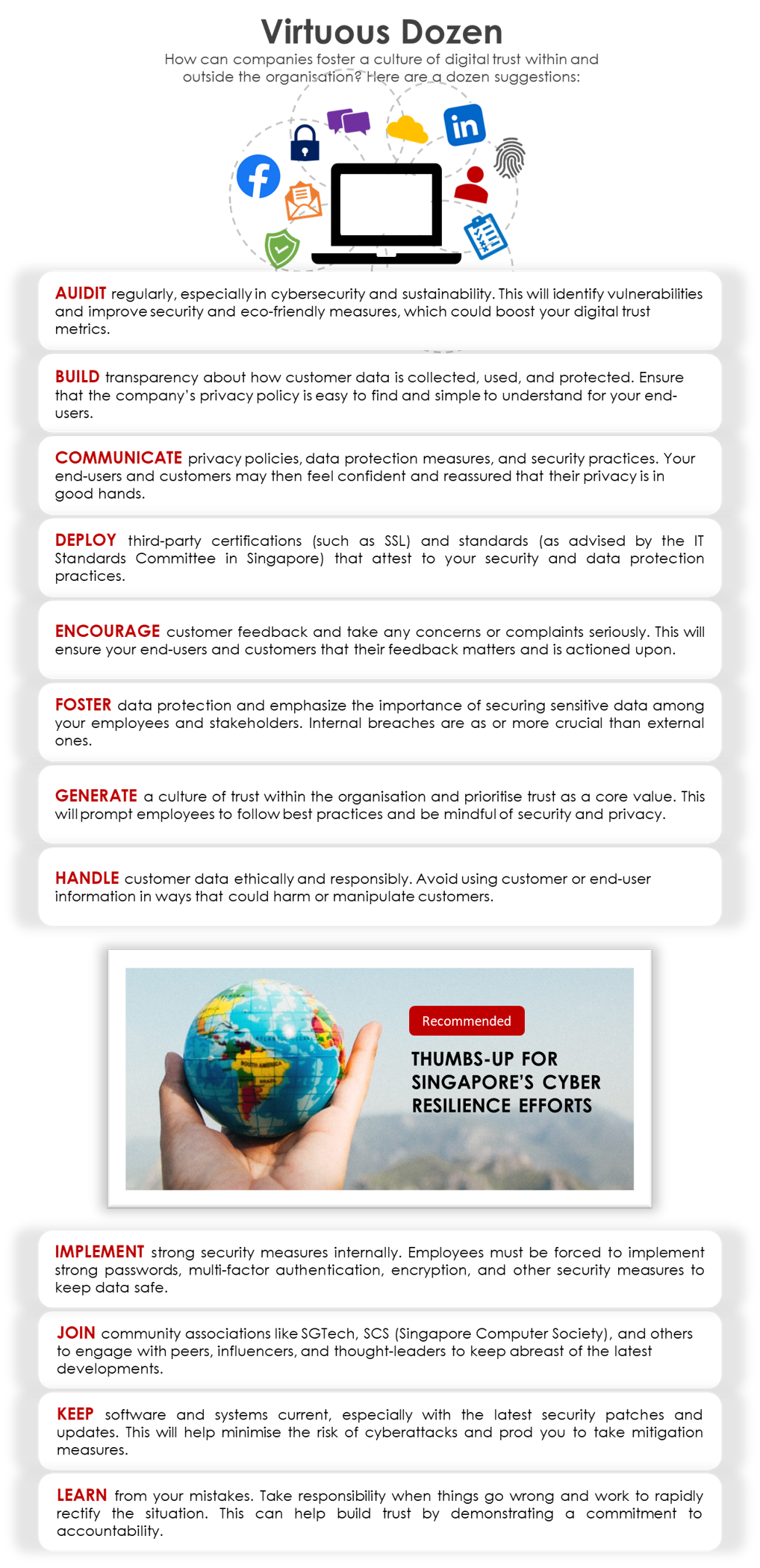Digital trust is quite hard to find,
with scams and hacks of every kind.
We type in our info,
hoping it won’t go,
to some cybercriminal’s bind.
If that limerick made you smile, these statistics should make you scowl: Edelman’s 2021 Trust Barometer showed that between 2012 and 2021, global trust in the tech sector dropped from 77 per cent to 68 per cent. The public has become increasingly suspicious of tech, with misinformation, personal privacy, 5G networks, and AI bias topping the list of worries. “The loss of digital trust suggests many people are worried about the role technology plays in their lives currently,” the World Economic Forum noted in November 2021. “This is especially relevant when millions of people around the world have shifted to online learning, telemedicine, remote work, and e-commerce to counter the restrictions brought about by the pandemic.” Trust in Transparency The advent of AI has complicated the issue. Up to 60 per cent of consumers think companies care more about profiting from their data than protecting it. However, 70 per cent of consumers are confident that the companies they buy products and services from are protecting their data. That’s the view from McKinsey & Company, which polled 1,300 business leaders and 3,000 consumers worldwide last year. This data suggests that most consumers believe that the businesses they interact with are being transparent—at least about their AI and data privacy policies. About 67 per cent of consumers have confidence in their ability to find information about company data privacy policies; about 55 per cent are confident that they can elaborate on their company’s AI policies. Consumer faith in cybersecurity, data privacy, and responsible AI hinges on what companies do today. Establishing this digital trust just might lead to a more robust business growth. It is pertinent to note that more than half of respondents said they often or always make online purchases or use digital services from a company only after making sure that the company has a reputation for being trustworthy with its customers’ data. “The research indicates that organisations that are best positioned to build digital trust are also more likely than others to see annual growth rates of at least 10 per cent on their top and bottom lines,” McKinsey noted. “However, only a small contingent of companies surveyed looks likely to deliver on this.” In today’s AI age, the traditional model of information security is being challenged. While integrity, confidentiality, and availability of information have long been the top priorities, the growing integration of AI into physical spaces - such as self-driving cars and facial recognition systems - has resulted in prioritising human safety. With digital breaches capable of causing physical harm, businesses need to place more emphasis on protecting both individuals and environments. As the boundaries between the digital and physical worlds continue to blur, it is becoming increasingly clear that human safety must become the primary goal of information security.
Since I started this article with a limerick on digital trust, let me end it with another:
In today’s AI age, the traditional model of information security is being challenged. While integrity, confidentiality, and availability of information have long been the top priorities, the growing integration of AI into physical spaces - such as self-driving cars and facial recognition systems - has resulted in prioritising human safety. With digital breaches capable of causing physical harm, businesses need to place more emphasis on protecting both individuals and environments. As the boundaries between the digital and physical worlds continue to blur, it is becoming increasingly clear that human safety must become the primary goal of information security.
Since I started this article with a limerick on digital trust, let me end it with another:



Jun 9, 2023 Author Cedric Serpes comment id is:20status is:approved
Well written and researched article by a professional who practices the science. Very helpful and thorough on a topic that needs to be addressed today.